¿FAMILY-CONCEPT(S) IN THE POSTMODERNISM?
Keywords:
family, postmodern times, social Word.Abstract
Mono-parental families, reconstituted families, families in liberal relationship, homo-parental families, intercultural families… In postmodern times, we are surrounded by different concepts of families. Postmodernism is marked by relativism of life-concepts, liberty and insurance at the same time. In actual debates about family-concepts, traditional images and orientations are losing each time more their assurance. This article reflexions the roots, which has the ideal of a nuclear family since pre-modern times, passing modern times unto postmodern times. Having in mind, that social work is a profession of Social Sciences with a practice focus, this article wants to initiate the following critical reflexions: Which are the functions, the sense and the valour of the institution: family? What should be the consequences for social work? Which type of programs and policies should be structured for services and wellbeing of families?
Author Biography
Martín Schatke
de la Fundación Universitaria Juan de Castellanos.
References
Alfonso, T., Grueso, L., Prada, M., Salinas, Y. & Lemaitre, J. (2011). Derechos Enterrados – Comunidades étnicas y campesinas en Colombia, nueve casos de estudio. Colombia, Bogotá.
Beer, B. (2010). Interethnische Beziehungen und transkulturelle Verwandtschaft an einem Beispiel aus Papua-Neuguinea. Recuperado de http://www.bettinabeer.info/pdf/ Beer_2010.pdf 27.06.2016.
BMWFJ (Bundesministerium für Wirtschaft, Familie und Jugend). (2011). Patchwork- Familie – Ein Ratgeber und Begleiter für Familie. Austria, Viena.
Boff, L. (2013). Ecología: grito de la tierra – grito de los pobres. Argentina: Lumen.
Constitución de Bolivia. (2009). Constitución del Estado Plurinacional de Bolivia. Bolivia, La Paz.
Constitución de Ecuador. (2008). Constitución de la República del Ecuador. Ecuador, Quito.
Crouch, C. (2008). Postdemokratie. Alemania, Frankfurt am Main.
Currlin, W. (2014): Die säkularen Wurzeln unserer Gegenwart. Recuperado de http://www.wcurrlin.de/kulturepochen/Die-saekularen-Wurzeln-unserer-Gegenwart.htm (16.02.2016).
Erath, P. (2008). Theory building, research and knowledge transfer in social work; En: Materialien zur Vergleichenden Sozialarbeitswissenschaft und zur Interkulturellen / Internationalen Sozialarbeit Volume 8; Adams, A., Erath, P. & Jovelin, E. (Ed.): Social Work and Science – An uneasy relationship? – Contributions on the occasion of the conference on “social work and scientific debates”. Lille March 12-14, 2007; Alemania, Eichstätt.
Escobar, A. (2010). Una minga para el postderallo: lugar, medio ambiente y movimientos sociales en las transformaciones globales; Peru, Lima.
Freise, J. (2007). Interkulturelle Soziale Arbeit – Theoretische Grundlagen – Handlungsansätze – Übungen zum Erwerb interkultureller Kompetenzen. Alemania, Schwalbach.
García R. & Gustavo, O. (2013). Comentarios al concepto de la familia y a algunas perspectivas del mismo desde la política pública. Revista Colombiana de Trabajo Social, Número 24; Colombia, Bogotá.
Givsan, H. (2007). Dass die Philosophie nur abendländisch-europäisch sei – und was nun? Frage an Heidegger und Husserl. Paetzold, Heinz / Schmied-Karverzik, Wolfdietrich: Interkulturelle Philosophie; Alemania, Weimar.
Guzmán, V. (2002). Las relaciones de género en un mundo global. Chile, Santiago de Chile.
Habermas, J. (1985). Die neue Unübersichtlichkeit. Alemania, Frankfurt am Main.
Hardt, J. (2010). Sehnsucht Familie in der Postmoderne – Einführung in die Thematik. En Hardt, Jürgen et al. (Ed.): Sehnsucht Familie in der Postmoderne – Eltern und Kinder in Therapie heute. Alemania, Göttingen.
ICBF (2016). Instituto Colombiano de Bienestar. Recuperado de http://www.icbf.gov.co/portal/page/portal/PortalICBF.
ICBF (2016). Mision, Visión, Objetivos y Pilares del ICBF. Recuperado de http://www.icbf.gov.co/portal/page/portal/PortalICBF/EiInstituto.
ICBF (2012). Caracterización de Familias Colombianas. Colombia, Bogotá.
Naím, M. (2013). El fin del poder – empresas que se hunden, militares derrotados, Papas que renuncian y gobiernos impotentes: Cómo el poder ya no es lo que era. Bogotá
Nave-Herz, R. (2003). Familie zwischen Tradition und Moderne – Ausgewählte Beiträge zur Familiensoziologie; Alemania, Oldenburg.
Perondi, A. C., Rodríguez, M., Molpeceres, L. & Ongil, M. (2012). Familias Formadas por una sola persona adulta con hijo(s) y/o hija(s) a su cargo: diagnósticos y propuestas. España, Madrid.
Restrepo Martínez, A. M. (2007). La modernización de la familia rural en el marco del desarrollo local y regional. Bogotá.
Salazar Silva, F. (2005). La configuración del Estado de Bienestar: elementos constitutivos. Bucaramanga.
Schatke, M. (2014). Internationale Freiwilligendienste im Konzept globaler Sozialer Arbeit – eine Konepterstellung für die kolumbianische Stiftung “Fundación 180 Ramos de Buitrago”. Alemania, Colonia.
Staub-Bernasconi, S. (2007). Vom beruflichen Doppel- zum professionellen Triplemandat – Wissenschaft und Menschenrechte als Begründungsbasis der Profession Soziale Arbeit; En: Zeitschrift für Sozialarbeit in Österreich, Juni 2007; Suiza, Zürich.
Theisen, H. (2012). Nach der Überdehnung – Die Grenzen des Westens und die Koexistenz der Kulturen. Alemania, Berlín, Münster.
Toussaint, E. & Millet, D. (2011). Sieben gegen die Weltbank – Die Bank des Südens als Alternative für LateinamerikaEdition Le Monde Diplomatique: Südamerika – der eigene Kontinent; Alemania, Berlín.
Trompenaars, A. (1993). Riding the waves of culture: Understanding cultural diversity in business. Inglaterra, London.
UNESCO (2002) Declaración universal sobre la diversidad cultural; Suráfrica, Johannesburg.
Welsch, W. (2009). Was ist eigentlich Transkulturalität? Alemania, Jena.
Welsch, W. (1987). Unsere postmoderne Moderne. Alemania, Weinheim.
Winkler, H. A. (2010).Geschichte des Westens – Von den Anfängen in der Antike bis zum 20. Jahrhundert. Alemania, Munich.




